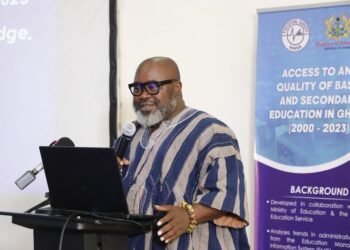In a sharp critique of the Supreme Court’s recent decision Hon. Murtala Mohammed, MP for Tamale Central, expressed serious concerns over the legitimacy of parliamentary records that were relied upon in a court application.
According to Murtala Mohammed, the records from Parliament that were presented to the court were incomplete and unapproved, leading the court to make a ruling based on misleading information.
Murtala Mohammed began by explaining how Afenyo Markins, a key figure in the case, based his arguments on unapproved parliamentary proceedings.
According to him, the record of parliament that was used had not been approved. He Charged; ‘‘The Supreme Court completely erred, Afenyo Markins went to court based on proceedings that happened on Thursday.”
He further elaborated that this practice was a serious oversight as, under parliamentary procedure, the proceedings of one day are always approved the next day, after necessary corrections have been made.
Approval of Parliamentary Votes and Proceedings
“That’s why we have votes after corrections, and most often you have corrections. Until the proceedings are corrected and approved, you can’t take that as an official document of parliament.”
Hon. Murtala Mohammed MP for Tamale Central
Murtala Mohammed stressed that the official record presented to the court had not undergone this approval process, making it unofficial. He further revealed that there was an ongoing investigation into a parliamentary officer who allegedly leaked the raw, unapproved proceedings to the NPP, allowing them to present misleading documents before the court.
Supreme Court Misled by Inaccurate Documents
The MP criticized the Supreme Court for failing to conduct due diligence in verifying the authenticity of the documents presented by Afenyo Markins and his legal team. According to him.
“The Supreme Court was misled into believing that what Afenyo Markins and his lawyers presented to them was the factual statement approved by parliament. It was not.”
Hon. Murtala Mohammed MP for Tamale Central
He further explained that the court should have taken additional steps to confirm the official parliamentary record before making a decision. This oversight, according to Murtala, calls into question the reliability of the Supreme Court’s ruling in this case.
Judiciary Overstepping its Bounds

Murtala Mohammed’s critique extended beyond the misuse of unapproved parliamentary records to the broader issue of the judiciary’s role concerning Parliament.
“The purpose for separation of powers is not to tilt power towards one arm. I’m saying that what the Supreme Court did, is they have an exclusive authority to interpret the law. The directive of the Supreme Court was not interpreting the law.
They were directing Parliament to stay [of course for 10 days]. I’m saying, what has that got to do with [the] interpretation of [the] law?”
Hon. Murtala Mohammed MP for Tamale Central
In his view, this directive represented a violation of the principle of separation of powers, where no one branch of government should overstep its boundaries over another. He was adamant that the Supreme Court, in this instance, had directed Parliament rather than interpreting the law, which was outside the judiciary’s purview.
Call for Contempt Proceedings Against Supreme Court Judges
He noted that both Parliament and the judiciary have the authority to cite individuals or institutions for contempt, and in this case, he felt the judiciary’s actions warranted such measures.
“I was expecting the speaker to cite the judges who sat on the case, for contempt of parliament, the speed and alacrity with which the supreme court sat on the matter, when they said they won’t sit on Friday.”
Hon. Murtala Mohammed MP for Tamale Central
A Call for Accountability
In conclusion, Hon. Murtala Mohammed’s remarks underscored his concerns about the legitimacy of the judicial process and the need for greater diligence in handling parliamentary records. His critique also raises important questions about the balance of power between the judiciary and Parliament, and whether the judiciary has overstepped its bounds in this particular case.
By calling for contempt proceedings against the Supreme Court, Murtala Mohammed emphasized the need for accountability in all branches of government, including the judiciary.
READ ALSO; Galamsey Wrecks Havoc on Ghana’s Tourism Aspirations




















